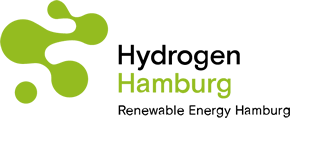Details
EEHH in dialogue with emerging renewable nations From Hamburg to the world: delegations from the US, Japan and Brazil visit EEHH at Husum Wind
Husum Wind is the most important trade fair for the renewable energy industry for the German-speaking market.

Husum Wind is the most important trade fair for the renewable energy industry for the German-speaking market. From 12 to 15 September, more than 600 exhibitors showcased new products and technologies for on/offshore wind, hydrogen, storage technologies and sector coupling. The trade fair attracted over 12,000 visitors from 51 countries. The EEHH Cluster Agency attended, together with six member companies (Altastitan, GLS Bank, Norddeutsches Reallabor, Smartenergy, TÜV NORD and Vattenfall).
Experts exchange knowledge as part of the US-Germany Climate and Energy Partnership
At the invitation of the Federal Ministry for Economic Affairs and Climate Action, an expert delegation from the US offshore wind industry travelled to Germany with representatives from the Department of Interior and Bureau of Ocean Energy Management, the US States of Virginia, New York and Oregon, energy networks and private companies. Following talks with political decision-makers in Berlin, they visited Husum Wind. Jan Rispens, EEHH Managing Director, and Jingkai Shi, EEHH Project Manager International Cooperation Renewable Energies, provided the delegation with insights into their own work and exchanged ideas with them regarding market developments, technologies and challenges in the offshore wind and hydrogen sectors.
Hamburg and the US are closely linked by renewable energies. EEHH members RWE, Ørsted and Siemens Gamesa Renewable Energy are pioneers in the development of the renewable energies industry in the US; the EEHH Cluster Agency helps SMEs in its own network in particular to develop markets and connect with US business partners. The EEHH Cluster Agency has been attending the IPF since 2022, the premier conference for offshore wind in North America, where it is positioning Hamburg as Germany’s offshore wind capital.
Innovative technologies from the Japanese partner region of Fukushima
Two companies from Fukushima (Nicchu Corporation and Aashi Rubber Inc.) exhibited at Husum again this year, with the support of the Fukushima Prefecture. Nicchu Corporation is a medium-sized company specialising in the production of high-pressure shot-blasting machines. Its operations encompass a wide range of industries, e.g. aviation, food and foundries. In recent years, its business has increasingly focused on renewable energies and wind power. At Husum, Nicchu presented a prototype for a deposit layer that can be applied to the surface of rotor blades to measure wind data.
Aashi Rubber is a service provider for light and colour control technology and plasma airflow control electrodes for wind turbines. Hamburg and Japan/Fukushima have maintained a close relationship since 2018. Despite the disruption caused by the coronavirus pandemic, regular joint events have taken place in recent years, along with reciprocal in-person visits as part of the E-world, WindEnergy Hamburg and REIF trade fairs since 2022.
Round table with Brazilian hydrogen economy
To learn about hydrogen activities in northern Germany, the German Chamber of Commerce in Rio de Janeiro and GIZ organised a German-Brazilian expert panel during the run-up to Husum Wind 2023. Well-known Brazilian companies such as Petrobras and Eletrobras took part. Hamburg’s attendees included Sibyl Scharrer, EEHH Project Manager International Cooperation Hydrogen and Katja Löwe, Project Manager B2B Marketing at North German Living Lab (Norddeutsches Reallabor). The Brazilian delegation also visited the North German Living Lab on the EEHH trade fair stand, where they learnt about the German and EU funding mechanism for the market ramp-up of the hydrogen economy.
Brazil has ambitions to become one of the leading nations in the hydrogen sector. The South American country has excellent conditions for producing green hydrogen. The share of renewable energies in its electricity mix is already more than 90%, with the majority being hydrogen. Solar and wind have potential for expansion. According to a Bloomberg-NEL study, Brazil can produce the most competitive hydrogen in the world using wind power: between USD 1-1.50/kg in 2030 and USD 0.55/kg in 2050. 57 green hydrogen projects have been launched since 2018, with an investment volume of USD 30 billion and an electrolysis capacity of 18GW.


